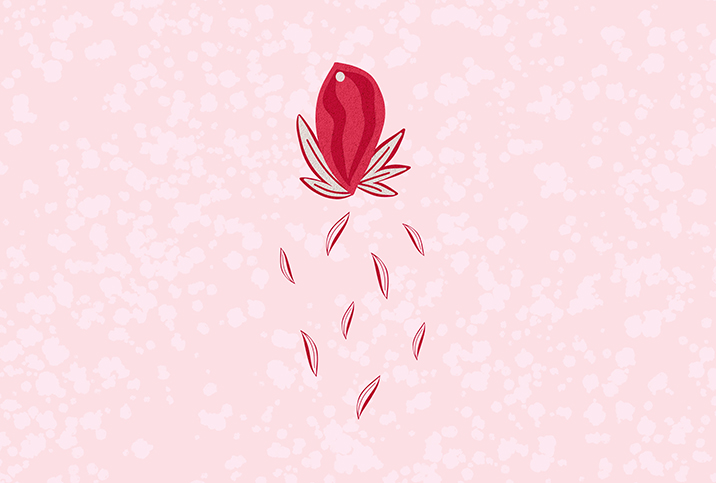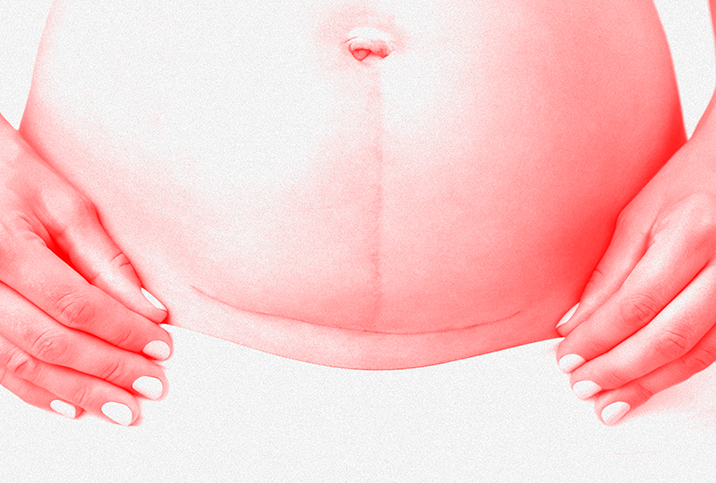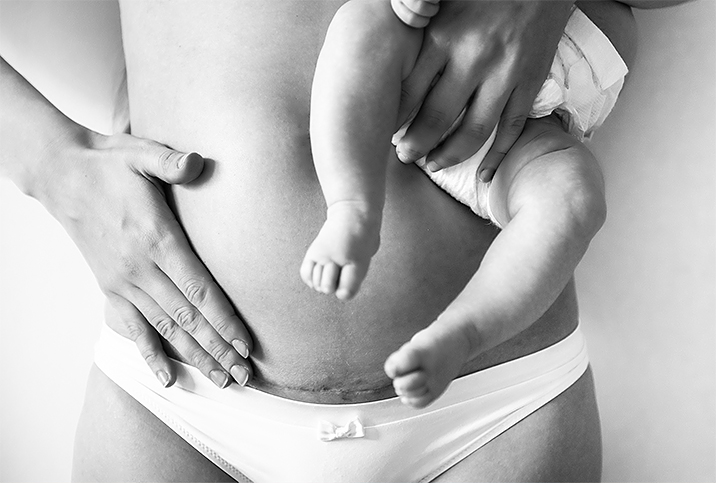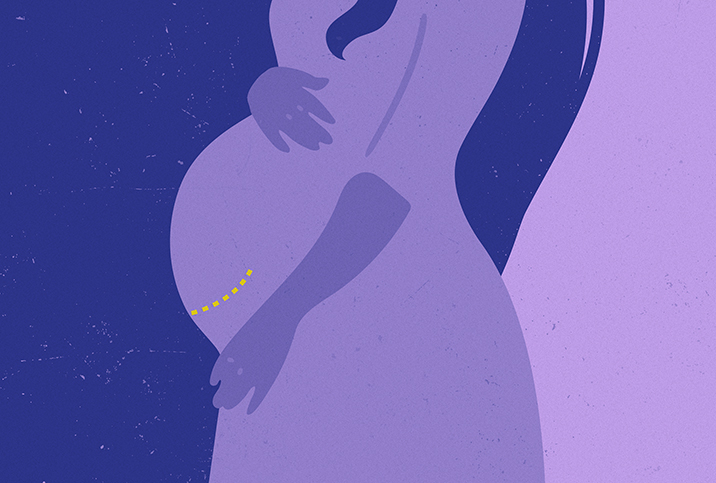WTF Is Vaginal Seeding?

It's estimated that 31.8 percent of births are delivered by cesarean section, and there are often concerns from mothers about the health of their baby upon delivery.
Some people believe babies who are born by C-section are not exposed to the same beneficial bacteria that vaginally born babies are, which can increase the chances of the baby developing asthma, allergies and other health issues.
While there's not enough evidence to support this theory, there are some people who believe vaginal seeding is the solution.
Understanding vaginal seeding
"Vaginal seeding is the process of using vaginal fluids to transfer vaginal flora [bacteria and other organisms that live in the vagina] to the mouth, nose or skin of a newborn," said Stephanie Hack, M.D., an OB-GYN and the host of the "Lady Parts Doctor" podcast in Washington, D.C. "It is performed by using a cotton swab or something similar to swab the vagina and then the newborn."
Vaginal seeding is a relatively new practice that has been gaining popularity in recent years, said Taylor Soderborg, M.D., Ph.D., who is based in Massachusetts and is the medical director at Tiny Health, a microbiome test company.
The first pilot study on vaginal seeding was carried out in 2016 and the results suggested that "vaginal microbes can be partially restored at birth in C-section-delivered babies." It's speculated that restoration can lower the risk of immune and metabolic disorders. In a later study published in 2021, researchers found swabbed babies had a healthier microbiome which closely matched that of vaginally born babies.
Despite this procedure recently growing in popularity, there are still many people who are unaware of it, Soderborg said. In a different 2021 study that took place in New Zealand, only 30 percent of the pregnant women who were interviewed knew what vaginal seeding was.
While the study did reveal a positive attitude from participants upon reading information about the practice, it's clear that there are still reservations from many pregnant women and healthcare professionals due to the lack of data.
Is vaginal seeding safe?
Hack explained that every pregnant woman has the right to request whatever care they deem appropriate.
However, your OB-GYN will provide evidence-based information to help you make an informed decision that is in your and your baby's best interests. If your doctor has concerns, they may refuse to perform the procedure.
The main concern is that there is not enough data to back up the claims that vaginal seeding is beneficial to the baby. The American College of Obstetricians and Gynecologists (ACOG) does not recommend or encourage vaginal seeding due to the lack of evidence and the fear of adverse effects.
There is a huge concern that this procedure could transfer infectious diseases and harmful bacteria to the baby, Hack warned.
Soderborg agreed that the practice isn't appropriate for everyone.
"It isn't advisable to perform vaginal seeding if you have tested positive for group B Streptococcus, HIV, hepatitis B and C, syphilis or genital herpes," Soderborg said. "It's also not recommended if you have signs of bacterial vaginosis or a [vaginal] pH greater than 4.5."
Due to this risk, Soderborg encourages expectant mothers to test their vaginal microbiome as early as possible. Testing allows professionals to see a detailed composition of the microbiome, which can help in knowing if vaginal seeding is a suitable option for you.
She stated that vaginal seeding is not a self-help practice and should always be done under a qualified birth practitioner's supervision and with thorough testing beforehand.
Are there alternatives to improve the baby's microbiome?
The gut microbiome affects all aspects of human health and plays a key role in the immune system. An imbalance of bacteria can lead to irritable bowel syndrome (IBS), inflammatory bowel disease (IBD) and depression, among other health complications, according to research published in the European Journal of Nutrition.
Furthermore, the development of the microbiome in early life can have a huge impact on your health later in life. Taking those early steps to expose your baby to beneficial bacteria is a practice that makes sense, but there are other ways to do this.
Skin-to-skin contact "permits microbial colonization of the newborn with maternal skin microbiota," according to a 2017 study published in the Scientific World Journal. It can also encourage early latching onto the breast, which is very important for cesarean-born babies.
Breastfeeding is the next most impactful microbiome seeding factor, Soderborg explained, as the mother can continue to transfer her microbes to her baby through her breast milk.
Is vaginal seeding worth it?
There is not enough data on the long-term benefits or risks of vaginal seeding for babies, which is why many healthcare professionals are hesitant to recommend it to patients. In many cases, the risks could outweigh the benefits.
"Risk of pathogenic infections from mother to baby like herpes simplex virus, group B streptococci,Chlamydia trachomatis and Neisseria gonorrhoeae is the primary concern as these infections in a neonate can be fatal or lead to permanent morbidity," said Shvetha Zarek, M.D., an OB-GYN at Oma Fertility in St. Louis.
If you are considering this procedure, first speak to your doctor, who can help you make an informed decision.


















